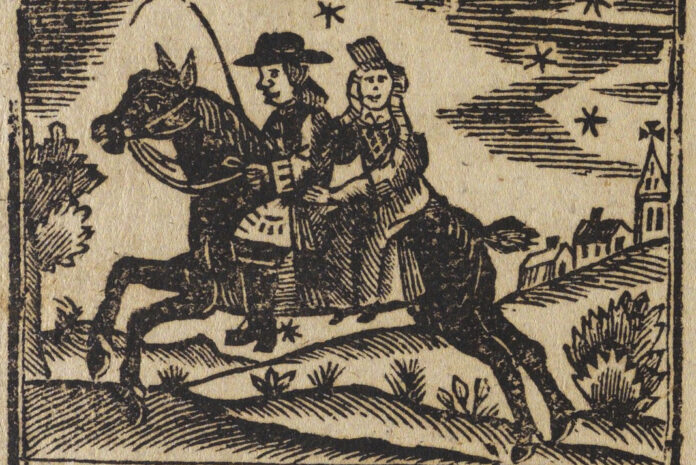Lindy Cummings, Tryon Palace
In early August 1778, James Flett entered the print shop of James Davis, located on Front Street (near present-day Craven County Courthouse). Flett either carried a slip of paper or dictated to Davis or an apprentice an advertisement that cost three shillings (roughly the cost of two bottles of imported beer at Edward Batchelder’s nearby store). It ran for one day on page four of The North-Carolina Weekly Gazette:
WHEREAS my wife KATY has eloped from me, I take this public method to inform all persons from trusting her own my account, as I will not be answerable for any debts she may contract from the date hereof.
A few weeks later, William Hales placed his own notice, “my wife Betty has eloped from me…I shall not pay any debts she may, after this date, contract.” In 1796, Leven Dickenson also leveraged the local paper to announce that he would no longer be responsible for the debts of his wife, Beersheba.
What was happening? In a period when divorces were difficult, if not impossible, to secure, women like Katy Flett, Betty Hales, and Beersheba Dickenson were practicing “self-divorce” by leaving their husbands’ households. Historian Clare Lyons points to similar Philadelphia advertisements that the ads drew on legal traditions by severing financial responsibility. “Under English common law,” Lyons writes, “a wife had the right to a husband’s financial support, and a husband had the obligation to support her.”
While these ads show us that a very few 18th-century New Bernians ended their marriages by leaving the “bed and board” guaranteed them by their husbands, what these ads don’t tell us is why they chose to do so. In the case of Katy Flett, we get a small hint about marital discord. A local store owner publicly rebuked James Flett for his treatment of Katy and for attempting to ruin her character. Given the small size of New Bern in the late 18th century, when subscribers to Davis’s Gazette opened that week’s edition, they were probably unsurprised to learn that their neighbors had ended an unfortunate marriage.

